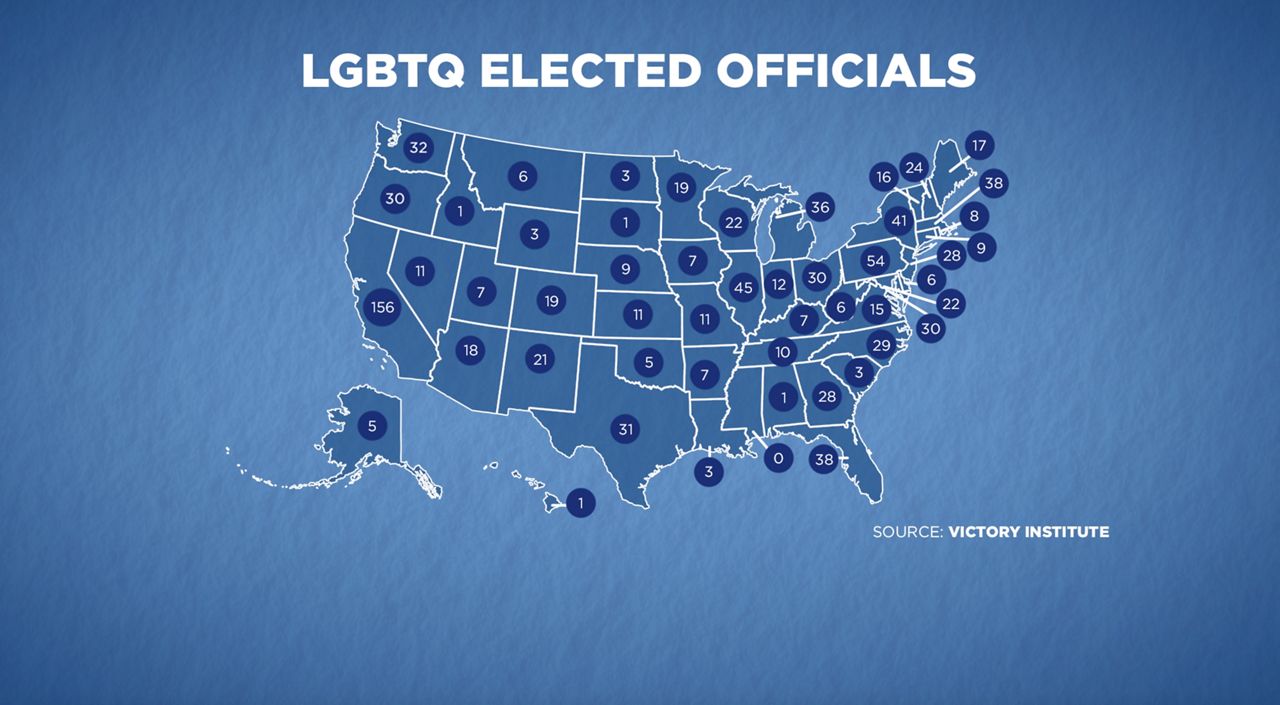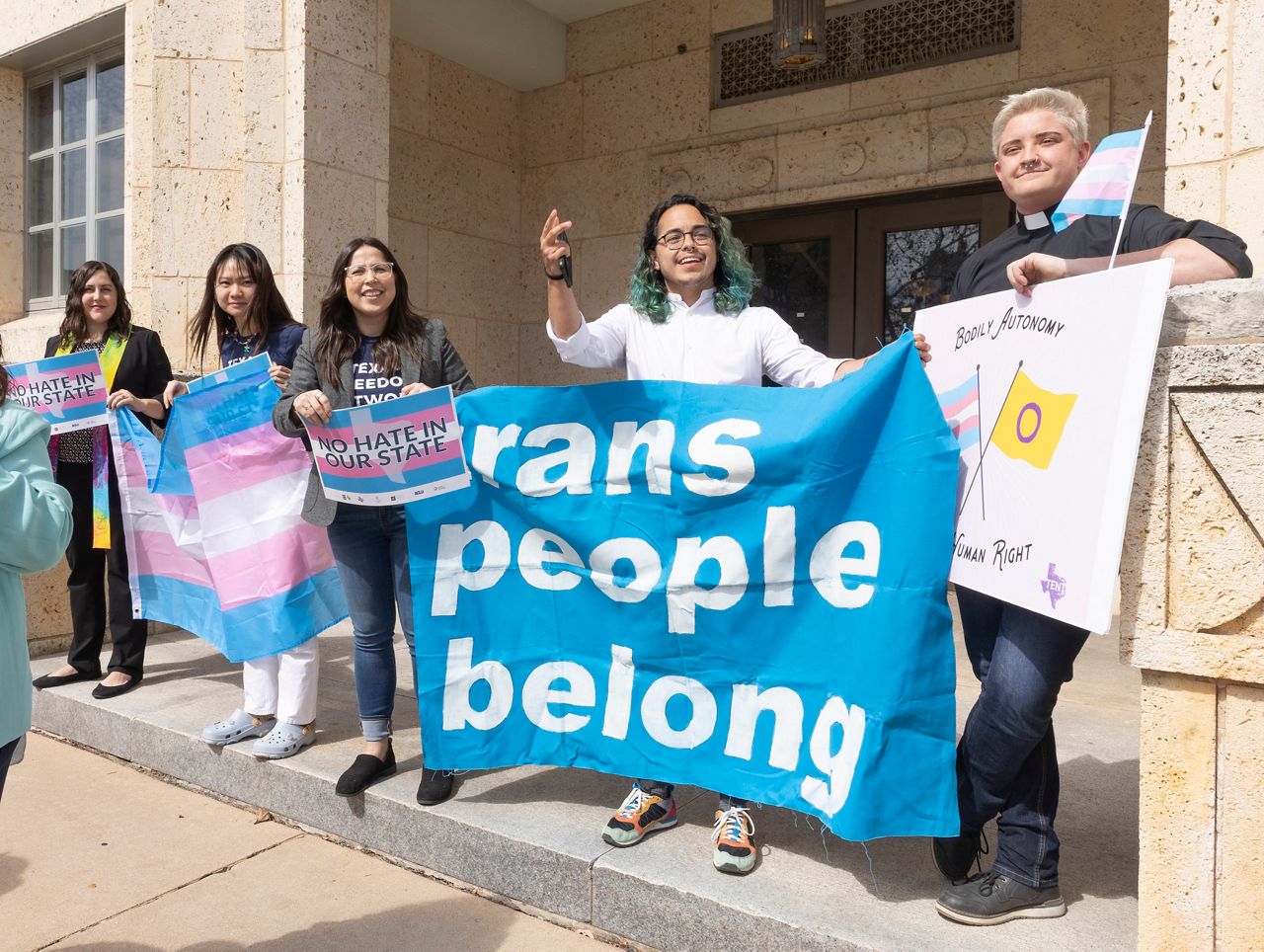In state capitals across the country, fierce debates are taking place about LGBTQ+ rights – from whether transgender athletes should compete high school sports, to whether providing medical care for gender transitions should be considered a form of child abuse.
This week, Florida’s Republican-controlled legislature passed a bill barring instruction on gender identity and sexual orientation in the early years of elementary school. The measure, which critics have dubbed the “Don’t Say Gay” bill, is expected to be signed into law by Republican Gov. Ron DeSantis.
At the same time, the 2022 election is expected to field a record number of candidates who identify as LGBTQ+. They say they’re fighting back on what gay rights advocates call a wave of homophobic restrictions.
And they’re running for positions that start from the very local level.
Norman, Oklahoma, home to the University of Oklahoma, has about 130,000 people.

And as he runs for local school board, one candidate is fighting against a top-heavy budget – and to bring a sorely-lacking perspective from a former teacher and a gay man.
“A lot of people are really concerned about what's happening in a lot of southern states right now, where legislatures are targeting LGBT kids and families,” said Alex Ruggiers, a former English and Language Arts teacher at Norman Public schools.
Ruggiers is running for the number two seat on the Norman Public Schools’ Board of Education, and is running against incumbent Dan Snell, who was first elected to the school board in 1997, and Chemise Stancle, a local small business owner.
For Ruggiers, this year’s election provides an opportunity to make the school board better reflect the community it represents. According to his campaign, he would be the first school board member to openly identify as a member of the LGBTQ community.
“Any legislative body, any governing body should represent the lived experiences of their constituents, and right now we don't have any LGBT people on our school board and I think that also needs to be remedied,” he told Spectrum News.
Earlier this month, a committee in Oklahoma’s State Legislature passed a bill that prevents transgender girls from playing on female sports teams in the state’s schools. While Ruggiers said there have not been any policies specifically targeting transgender youths in his district, schools still feel the trickle-down effects of such restrictive laws.
“As a teacher, I saw a lot of need for some education to happen on LGBT issues within our district,” he said. “There was a substitute that was transgender, and parents were allowed to keep their kids away from that person. Just you know, issues like that – pride flags being asked to be taken down from classrooms.”
And after winning the plurality of the vote last month, Ruggiers has a run-off for the seat on April 5.
Republican-led measures, like the one in Oklahoma’s legislature, are seen as politically popular in some quarters – but they’re also unleashing pushback, including at the ballot box.
About 1,000 known LGBTQ+ candidates ran in elections up and down the ballot two years ago – a number expected to grow this year, according to the Victory Project, which works to elect LGBTQ+ officials.
There has already been a marked increase in LGBTQ+ individuals running for Congress. In 2020, approximately 87 LGBTQ+ candidates for Congress; so far this year, there are around 100 LGBTQ+ individuals running for the House or Senate.
One such candidate is Florida State Representative Michele Rayner, who is vying for the state’s 13th Congressional District. Rayner was elected to serve as Florida’s House representative for District 70 in 2020.
“All policy is personal. All politics is personal,” Rayner, a Democrat, said in an interview. “And so I do take it personally. I not only take it personally because of me and my family, but I take it personal for my constituents. I take it personal for the LGBTQ kids that were just here in this Capitol.”

There are more than one-thousand elected officials who publicly identify as LGBTQ+, roughly equivalent to .2% of the overall number of elected officials nationwide. That is a very small percentage when placed against the total surveyed number of Americans identifying as LGBTQ – around 7.1%, according to a recent Gallup survey.
“We would need to elect twenty three thousand more out individuals to have parity in politics, and we know the number is higher than that, so it's not enough,” said Annise Parker, the President and CEO of Victory Fund and Victory Institute President, who is a former mayor of Houston.
“But the good news is that each election cycle, more people run from our community than the cycle before,” she added.
Overwhelmingly, LGBTQ+ candidates tend to be Democrats. But there are a handful of LGBTQ+ lawmakers who hold offices as Republicans nationwide.
Daniel Zwonitzer, a Republican member of the Wyoming House of Representatives, is seen as key to beating back anti-gay rights legislation in his state, which he says hasn’t passed an anti-LGBTQ bill since the 1970s.
Zwonitzer – who is gay – says it helps to bring his husband and children around the Capital.
“We're such a small state, we all know each other,” he told Spectrum News. “I think it makes a huge difference when you get two or three – a small percentage of your legislators that are openly LGBT. It's a lot tougher to go on the floor and, rip, ‘those crazy gays’ and what they're doing.”

As for why more don’t run? One answer is that today's vitriol makes it unappealing, no matter one’s sexuality.
“It takes a certain kind of personality and understanding you're going to be attacked,” Zwonitzer said. “More now than probably the last two decades, being in the public spotlight and taking political hits from wherever they come.”
Still, Zwonitzer is one of just 30 GOP lawmakers who identify as part of the LGBTQ+ community, and the only Republican in his state to identify as such, per the Victory Institute.
Other LGBTQ+ candidates similarly recognize the need for a thick skin – but say they also see the importance their representation can make. In Florida, as Rayner joined in a protest of anti-LGBTQ+ laws, she told Spectrum News she will continue fighting for people like her, despite any pushback.
“I was told that this was not a seat for someone like me, that I should sit down and that folks have already picked who they wanted to be in this seat,” Rayner told Spectrum News. “And then I remembered that's not how government works. This is a government for the people, by the people, and of the people.”



